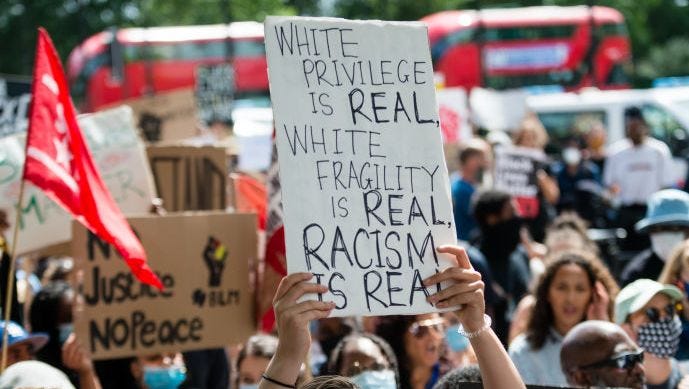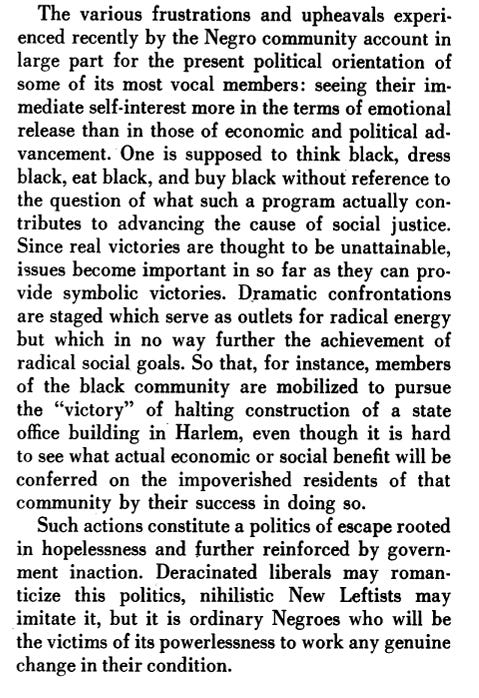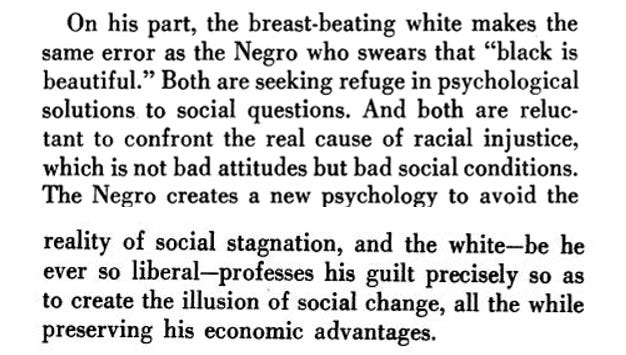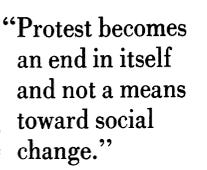Bayard Rustin was right. If only we'd listened.
His epic screed is as relevant today as it was a half century ago
The new movie about the late civil rights leader Bayard Rustin sent me into the archives, where I stumbled upon an absolute gem of an essay Rustin published in Harper’s in 1970. In his withering critique of the ascendance of black nationalism, Rustin was not only an astute critic of his time but a prophetic foreshadower of much of what the Left has become today.
In Rustin’s view, the Black Power movement, like their racist foes, reduced millions of unique black individuals to “simple biological verities of blood and racial survival.” He describes what we would now call “race essentialism” and “identitarianism” and condemns these stances as fundamentally conservative, a demoralized withdrawal from the political to the personal.
In contrast to their forerunners, whose organizing resulted in the landmark civil rights legislation of the 1960s, black nationalists had no such victories. By defining themselves and their needs in exclusively racial (versus multi-racial solidaristic) terms, they were destined to antagonize, if not frighten, the vast majority of non-black Americans.
Rustin observed that black nationalists ignored intragroup divisions along lines of age, geography, urbanity, and income. Instead of diversity and individuality, there was a singular black monoculture, adherence to which was of revolutionary importance.
In essentializing race in this way, Black Power activists became fixated on personal rather than structural reform. For blacks, this meant expressing themselves in an authentically “black” way. For white liberals, it meant self-flagellation followed by absolution (patting themselves on the back for their moral virtue in denouncing their racism or, in today’s lingo, their “whiteness”). And for conservative and moderate whites, it meant voting their race instead of their class—if activists insisted on dividing the country along racial lines, then most whites were going to vote their racial interest.1 Given that they’re the largest segment of the electorate, well, you know how that worked out.
We’re still living through the backlash that Rustin warned of, one that has had devastating electoral consequences. Many white voters feel a defensive need for a strongman who defends them against progressives’ rhetorical attacks. The strongman can get away with being extremely bad at governing so long as he incessantly stokes and amplifies his tribe’s sense of being wronged.
I’m not suggesting that racial resentment is the only constituent of GOP elect
oral strength, but it’s signifcant, and something we could, if we chose to, try to avoid inflaming. Progressive could dial back on toxic whiteness discourse and, instead, reassure white voters that our vision is one of universal uplift. Yet with some exceptions, here we are, more than a half century later, doubling down on the same symbolic, identitarian preoccupations that shipwrecked the civil rights movement on the shores of neoliberal Wokelandia.
There’s another eerie parallel between Rustin’s era and our own. By Rustin’s estimation, black nationalists’ separatist agenda reflected the views of no more than 15% of black Americans, yet purported, “illegitimately,” to speak for them. Today, progressive activists constitute no more than 8% of the population, yet have an outsized voice in universities, social media, journalism, philanthropy, and NGOs. As one of this eight percent, I’m often tempted to claim to be speaking for “the community,” but have become increasingly aware of how seldom this is true, or how vague such an assertion is—a community of precisely whom?
Rustin’s entire essay is a treasure trove of insights and observations that have, unfortunately, only become more true with the passage of time. For example, he argues that racially targeted reparations is a losing proposition in a country populated by poor folks of every skin color. He even finds time to take issue with the debasement of higher learning in the service of a (supposedly) revolutionary political agenda. We see this today at universities that sacrifice academic rigour, critical discourse and freedom of speech, to the dictates of woke orthodoxy.
Could Rustin have even dreamed that, fifty years later, it would be progressives calling for resegregated dorms and telling math teachers that asserting an objectively correct equation is a manifestation of white supremacy (aka “the 2+2=5” dustup)? Surely, this wasn’t Martin Luther King’s dream nor, I’m certain, Rustin’s.
Rustin makes the most compelling case I’ve seen for why multiracial class-based solidarity is the best strategy for addressing economic inequalities that oppress black Americans disproportionately but not uniquely.
“If he [a black worker] defines the problem as primarily one of race, he will inevitably find himself the ally of the white capitalist against the white worker. But if, though always conscious of the play of racial discrimination, he defines the problem as one of poverty, he will be aligned with the white worker against management. If he chooses the former alternative, he will become no more than a pawn in the game of divide-and-conquer played by, and for the benefit, management.”
Bayard Rustin, I wish you were with us today.
This could be an oversimplication that people who lived through the 1970s could add nuance to. But since I was just a child then, I’m relying on Rustin’s characterization.






Truth!
<<With the passage of the Civil Rights Act and the Voting Rights Act, the movement that had accomplished them had a broad discussion and debate about “where next?” Bayard Rustin, in particular, along with King and Randolph, argued that the movement should move “beyond race relations to economic relations” (Rustin), which contradicts the narrative that was coming out of Carmichael/Ture’s SNCC that it was Rustin’s was essentially a bourgeois movement. Rustin argued aggressively for further social democratic reforms—outlined at the March on Washington—that would be universal, in the sense that they’d apply to poor and working class of all ethnicities.>>
https://stanleyabner1951gmailcom.substack.com/p/american-black-history-and-political-a21
Great article.